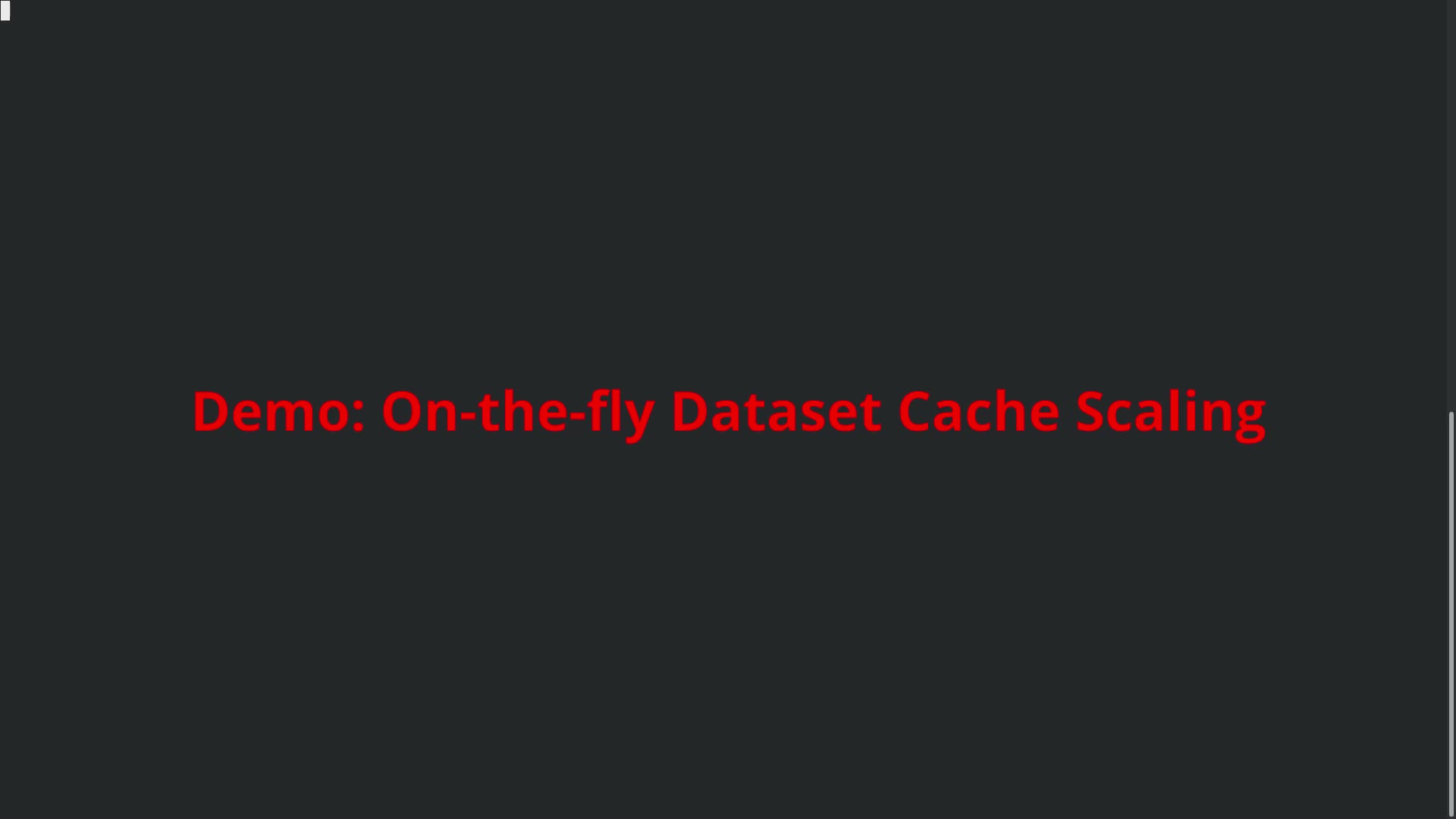| 📅 Community Meeting |
|---|
| The Fluid project holds bi-weekly community online meeting. To join or watch previous meeting notes and recordings, please see meeting schedule and meeting minutes. |
Fluid is an open source Kubernetes-native Distributed Dataset Orchestrator and Accelerator for data-intensive applications, such as big data and AI applications. It is hosted by the Cloud Native Computing Foundation (CNCF) as a sandbox project.
For more information, please refer to our paper: Rong Gu, et al. Fluid: Dataset Abstraction and Elastic Acceleration for Cloud-native Deep Learning Training Jobs. IEEE ICDE. pp. 2183-2196, May. 2022.
English | 简体中文
| Sep. 03th, 2022. Fluid v0.8.0 is RELEASED! It provides various new features, such as Lifecycle management of Serverless Job with fluid sidecar support, Enable runtime controller on demand, Automatic CRD upgrader, Restrict pod scheduling to dataset cache nodes, Arm64 support with JuicefsRuntime, GCS support for Alluxio Runtime, and so on. Please check the CHANGELOG for details. |
| Mar. 02th, 2022. Fluid v0.7.0 is RELEASED! It provides various new features, such as Fuse sidecar auto injection for all the runtimes (suitable for serverless environment), Fuse auto recovery and upgrade, lazy fuse mount mode, support JuiceFS cache runtime and so on. Please check the CHANGELOG for details. |
| Aug. 11th, 2021. Fluid v0.6.0 is RELEASED! It provides various new features, such as dataset cache autoscaling and cronscaling, dataset cache aware Pod scheduling, HA support for cache Runtime. Please check the CHANGELOG for details. |
| Apr. 27th, 2021. Fluid accpeted by CNCF! Fluid project was accepted as an official CNCF Sandbox Project by CNCF Technical Oversight Committee (TOC) with a majority vote after the review process. New beginning for Fluid! . |
-
Native Support for DataSet Abstraction
Implement the basic capabilities required for data-intensive applications to achieve efficient data access and reduce the cost of multidimensional management.
-
Cloud Data Warming up and Accessing Acceleration
Fluid provides data warm-up and acceleration for cloud applications by using a distributed cache engine (Alluxio) in Kubernetes with Observability, Portability and Horizontal Scalability
-
Co-Orchestration for Data and Application
During application scheduling and data placement on the cloud, taking both the app's characteristics and data location into consideration, to improve the performance.
-
Support Multiple Namespaces Management
User can create and manage datasets in multiple namespaces.
-
Support Heterogeneous Data Source Management
Unify the Data access for OSS, HDFS, CEPH and Other underlayer storages.
Dataset: A DataSet is a set of data logically related that can be used by computing engines, such as Spark for big data analytics and TensorFlow for AI applications. Intelligently leveraging data often creates core industry values. Managing DataSets may require features in different dimensions, such as security, version management and data acceleration. We hope to start with data acceleration to support the management of datasets.
Runtime: The execution engine that enforces dataset security, provides version management and data acceleration capabilities. The Runtime defines a set of interfaces to manage DataSets in their life cycle, so the management and acceleration of datasets can be implemented behind these interfaces.
AlluxioRuntime: Based on open-source Alluxio, Fluid can manage and schedule Alluxio Runtime to achieve dataset visibility, elastic scaling, and data migration. This is one engine which supports data management and caching of Datasets.
- Kubernetes version > 1.16, and support CSI
- Golang 1.12+
- Helm 3
You can follow our Get Started guide to quickly start a testing Kubernetes cluster.
You can see our documentation at docs for more in-depth installation and instructions for production:
You can also visit Fluid Homepage to get relevant documents.
See ROADMAP.md for the roadmap details. It may be updated from time to time.
Feel free to reach out if you have any questions. The maintainers of this project are reachable via:
DingTalk:
WeChat Official Account:
Slack:
- Join in the
CNCF Slackand navigate to the#fluidchannel for discussion.
Contributions are highly welcomed and greatly appreciated. See CONTRIBUTING.md for details on submitting patches and the contribution workflow.
If you are interested in Fluid and would like to share your experiences with others, you are warmly welcome to add your information on ADOPTERS.md page. We will continuously discuss new requirements and feature design with you in advance.
Fluid is under the Apache 2.0 license. See the LICENSE file for details. It is vendor-neutral.
Security is a first priority thing for us at Fluid. If you come across a related issue, please send email to [email protected] .
Fluid adopts CNCF Code of Conduct.








